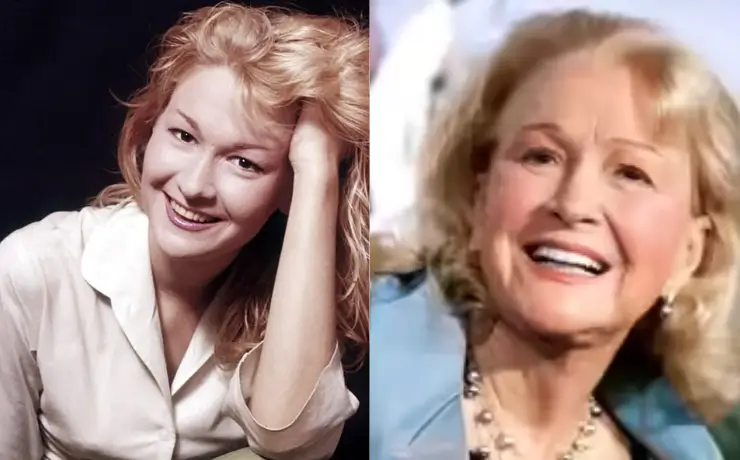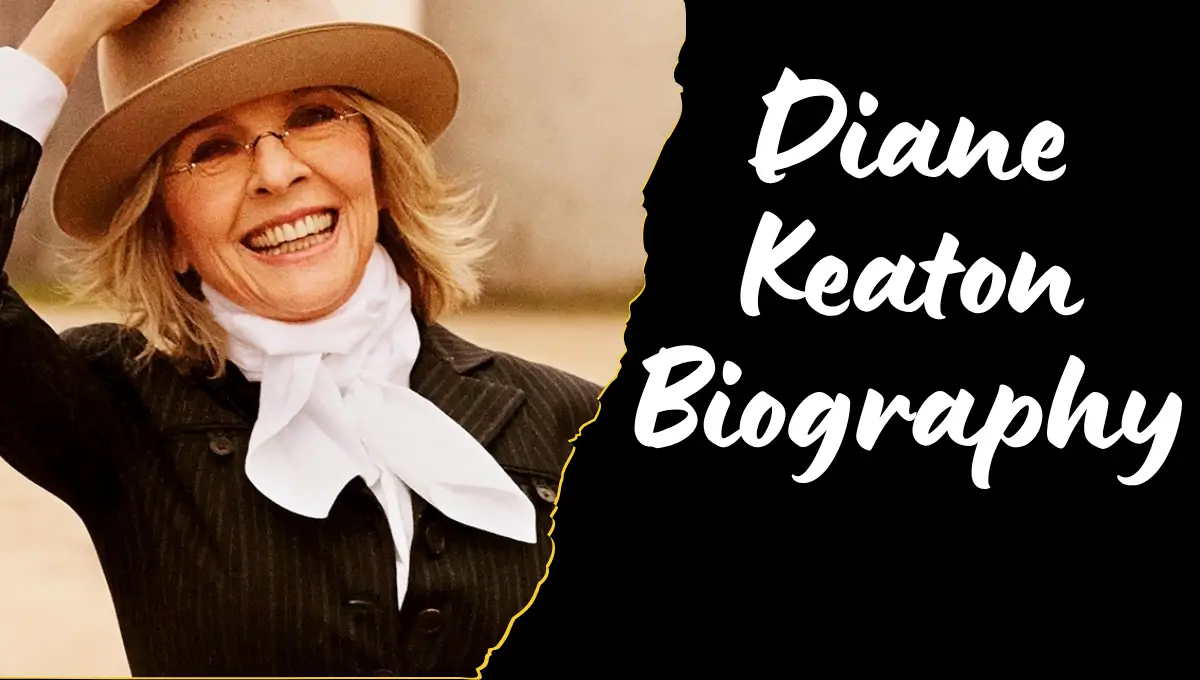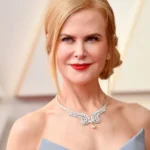Diane Ladd, the indomitable force of Hollywood whose sharp wit, unyielding spirit, and unforgettable portrayals of complex women earned her three Oscar nods and a lasting place in cinematic history, passed away on November 3, 2025, at the age of 89. Her death, at her serene home in Ojai, California, came after a battle with idiopathic pulmonary fibrosis—a lung condition she had confronted publicly years earlier with the same fierce determination that defined her life and career. Confirmed by her daughter, the acclaimed actress Laura Dern, Ladd’s passing marks the end of an era for an artist who not only commanded the screen but also mentored a new generation, including her own family, through her unapologetic authenticity.
For those searching “Diane Ladd obituary,” “Diane Ladd cause of death,” or “Diane Ladd career highlights,” this tribute delves deeper into her extraordinary journey, blending her Southern roots, groundbreaking roles, personal triumphs, and the profound legacy she leaves behind.

| Diane Ladd (1935–2025) | |
| Full Name | Rose Diane Ladner |
| Born | November 29, 1935 Laurel, Mississippi, USA |
| Died | November 3, 2025 (aged 89) Ojai, California, USA |
| Cause of Death | Idiopathic pulmonary fibrosis |
| Occupation | Actress, Director, Author, Producer |
| Years Active | 1958–2022 (over 200 credits) |
| Notable Awards |
• 3× Oscar Nominations • 1× BAFTA Award • Hollywood Walk of Fame (2010) |
| Spouses |
Bruce Dern (m. 1960–1969) William A. Shea Jr. (m. 1969–1977) Robert Charles Hunter (m. 1999–2025) |
| Children |
Laura Dern (actress) Diane Elizabeth Dern (d. 1962) |
| Legacy |
Pioneer of raw, authentic female roles Mother-daughter memoir with Laura Dern Defied medical odds for 7+ years |
| Source: Family Statement, Hollywood Reporter, IMDb | Updated Nov 4, 2025 | |
Early Life: From Mississippi Fields to the Bright Lights of New York
Born Rose Diane Ladner on November 29, 1935, in the small town of Laurel, Mississippi—though some accounts note her family’s Thanksgiving visit to relatives in nearby Meridian—Ladd grew up as the only child in a household steeped in rural charm and quiet ambition.
Her father, Preston Paul Ladner, was a dedicated veterinarian who specialized in poultry and livestock care, often traveling the backroads of the Deep South to tend to farms. Her mother, Mary Bernadette Anderson Ladner, balanced homemaking with her own flair for the stage as an aspiring actress, instilling in young Diane a love for performance that would soon propel her far from the cotton fields.
Ladd’s childhood was a tapestry of Southern storytelling—filled with family tales around the dinner table and the rhythmic hum of Mississippi summers. She once recalled in interviews how her mother’s dramatic readings of poetry sparked her imagination, while her father’s practical wisdom taught her resilience. By her early teens, Ladd had traded the humid air of Mississippi for the electric pulse of New York City, where she honed her skills in singing, dancing, and acting.
At just 16, she landed a gig as one of the famed “Copa Girls” at the Copacabana nightclub, dazzling audiences with her poise and charisma amid the glamour of mid-century Manhattan. This stage apprenticeship wasn’t just a launchpad; it was a crucible that forged her into a performer unafraid of reinvention, a trait that would echo through her seven-decade career.
Also Read- Dick Cheney Passes Away at 84: A Life of Service, Controversy, and Legacy
A Storied Career: From Stage Whispers to Silver Screen Roars
Diane Ladd’s professional odyssey began in the theater, where she married fellow actor Bruce Dern in 1960, a union that would both inspire and complicate her path. Early TV stints, including a role on the soap opera The Secret Storm, gave way to her film breakthrough in the 1960s, but it was the 1970s that catapulted her to stardom.
Her raw, electric energy found a perfect match in director Martin Scorsese’s 1974 masterpiece Alice Doesn’t Live Here Anymore, where she played Flo, the foul-mouthed, heart-of-gold waitress who steals scenes with her brassy one-liners. The role snagged Ladd her first Academy Award nomination for Best Supporting Actress and a BAFTA win, cementing her as a go-to for directors seeking unfiltered female fire.
Ladd’s versatility shone across genres: In Roman Polanski’s neo-noir Chinatown (also 1974), she embodied a cunning Los Angeles prostitute masquerading as high society, adding layers of intrigue to the film’s shadowy underbelly. David Lynch’s surreal Wild at Heart (1990) unleashed her as the over-the-top, protective mother Mariette Fortune, earning her second Oscar nod and praise for “squeezing her juicy role with scene-stealing zest,” as Rolling Stone’s Peter Travers noted. Her third nomination came in 1991’s Rambling Rose, a tender Southern drama where she starred opposite her daughter Laura Dern as a nurturing yet flawed matriarch—a meta moment that blurred the lines between art and life.
Over 200 credits, Ladd’s filmography reads like a Hollywood greatest-hits reel: the elegant widow in Ghosts of Mississippi (1996), the bold matriarch in Primary Colors (1998), and the steadfast grandmother in Joy (2015), supporting Jennifer Lawrence’s rags-to-riches inventor. On television, she brought gravitas to HBO’s Big Little Lies as Martha, the wise elder, and shone in the Hallmark series Chesapeake Shores.
Her final roles in Gigi & Nate and Isle of Hope (both 2022) showcased a performer who, even in her late 80s, refused to fade quietly. Ladd also directed once, helming the 1996 revenge tale Mrs. Munck with co-stars Shelley Winters and ex-husband Dern, proving her creative reach extended beyond the lens. Off-screen, she penned memoirs like Spiraling Through the School of Life (2006) and the short-story collection A Bad Afternoon for a Piece of Cake (2016), weaving her life’s philosophies into prose as vivid as her performances.
| Award | Year | Film/TV Role | Notes |
|---|---|---|---|
| BAFTA Award | 1975 | Alice Doesn’t Live Here Anymore (Flo) | Won for Best Supporting Actress; first major win. |
| Oscar Nomination | 1975 | Alice Doesn’t Live Here Anymore | Best Supporting Actress. |
| Golden Globe Nomination | 1975 | Alice Doesn’t Live Here Anymore | Best Supporting Actress. |
| Oscar Nomination | 1991 | Wild at Heart (Mariette Fortune) | Best Supporting Actress. |
| Oscar Nomination | 1992 | Rambling Rose (Mrs. Hillyer) | Best Actress; shared screen with daughter Laura Dern. |
| Hollywood Walk of Fame | 2010 | Adjoining stars with Dern family | First time for three generations. |
| Emmy Nominations | Various | Enlightened, Grace and Frankie | Multiple nods for TV guest spots. |
Personal Life: Love, Loss, and the Bonds That Endured
Diane Ladd’s heart was as expansive as her talent, though marked by profound sorrows. Her 1960 marriage to Bruce Dern produced two daughters: the first, Diane Elizabeth Dern, born in 1960, tragically drowned at 18 months in a pool accident in 1962—a loss that Ladd later channeled into advocacy for child safety and her unshakeable devotion to family.
Their second child, Laura Elizabeth Dern, arrived in 1967 and followed her parents into acting, becoming an Oscar winner for Marriage Story (2019). The couple divorced in 1969 amid the turbulence of young fame, but Ladd and Dern remained connected through their shared profession and mutual respect—Dern often crediting her mother’s grit as her north star.
Ladd’s second marriage to businessman William A. Shea Jr. (1969–1977) offered stability during her rising stardom. In 1999, she wed Robert Charles Hunter, former CEO of PepsiCo Food Systems, whose quiet strength complemented her vibrancy; they shared nearly 26 years until his death earlier in 2025, just months before hers.
Ladd’s life wasn’t without reinvention: In her 80s, diagnosed with idiopathic pulmonary fibrosis in 2018 and given a grim prognosis, she defied doctors by embarking on daily walks with Laura Dern. These hikes became the backbone of their 2023 memoir Honey, Baby, Mine: A Mother and Daughter Talk Life, Death, Love (and Banana Pudding), a raw, hilarious chronicle of grief, healing, and banana pudding-fueled confessions. “Nothing’s going to be handed to you,” Ladd advised aspiring artists. “You have to fight like a dirty rotten dog.” Her words, laced with Southern drawl and steel, encapsulated a philosophy that carried her through personal tempests.
| Diane Ladd: Personal Life Overview | |
| Marriages |
Bruce Dern (m. 1960–1969) William A. Shea Jr. (m. 1969–1977) Robert Charles Hunter (m. 1999–2025, until his death) |
| Children |
Diane Elizabeth Dern (1960–1962, drowned at 18 months) Laura Elizabeth Dern (b. 1967, Oscar-winning actress) |
| Grandchildren |
Ellery Walker Harper (b. 2001) Jaya Harper (b. 2004) |
| Health Journey |
Diagnosed with idiopathic pulmonary fibrosis (2018) Given 6 months to live — survived 7+ years through daily walks & determination |
| Residence |
Ojai, California (final home) Previously: Los Angeles, New York, Mississippi |
| Books & Writing |
Spiraling Through the School of Life (2006, memoir) A Bad Afternoon for a Piece of Cake (2016, short stories) Honey, Baby, Mine (2023, co-authored with Laura Dern) |
| Family Legacy |
First actress with three generations on Hollywood Walk of Fame (2010) Mentored Laura Dern throughout her career |
| Final Words |
“Nothing’s handed to you. Fight like a dirty rotten dog.” — Diane Ladd’s life motto |
| Source: Family Statements, Laura Dern Memoir, Hollywood Reporter | Updated Nov 4, 2025 | |
The Final Chapter: Tributes and a Legacy That Shines On
Ladd’s death from idiopathic pulmonary fibrosis— a progressive scarring of the lungs she had battled since 2018—was announced by Laura Dern in a poignant statement: “My amazing hero and my profound gift of a mother… passed with me beside her this morning… She was the greatest daughter, mother, grandmother, actress, artist and empathetic spirit that only dreams could have seemingly created. We were blessed to have her. She is flying with her angels now.” Dern, who held her mother’s hand in Ojai, echoed the family’s profound grief and gratitude.
Tributes flooded in from Hollywood heavyweights. Bruce Dern reflected, “Diane was a tremendous actress… a bit of a ‘hidden treasure’ until she ran into David Lynch,” crediting the director for unveiling her full brilliance. Martin Scorsese shared fond memories of Alice: “My experiences with Diane are among the best.” David Lynch praised her “juicy” intensity in Wild at Heart, while co-stars like Ellen Burstyn lauded her as a “foul-mouthed heart-of-gold” in real life too. Fans and critics alike mourned the loss of a woman who portrayed vulnerability with ferocity, often drawing from her own scars to infuse roles with aching truth.
On November 1, 2010, Ladd, Dern, and Bruce Dern received adjoining stars on the Hollywood Walk of Fame—the first such honor for three generations—symbolizing a dynasty she helped build. Her influence rippled beyond screens: As a feminist icon, she championed women’s stories in an industry that often sidelined them, directing, writing, and mentoring with equal passion. Ladd’s net worth, estimated at around $10 million at her passing, stemmed from decades of residuals, endorsements, and savvy investments, but her true wealth was in the lives she touched.
Diane Ladd didn’t just act; she lived with the volume cranked to eleven—messy, magnificent, and utterly her own. As Laura Dern wrote in their memoir, Ladd taught that “life’s too short for bad banana pudding.” In death, she leaves a world richer for her flavor: a reminder to fight dirty, love fiercely, and always steal the scene. Rest in power, Diane—Hollywood’s wild heart beats a little softer today.
Also Read– Diane Keaton Biography: The Quirky Queen of Hollywood – A Life in Spotlight







